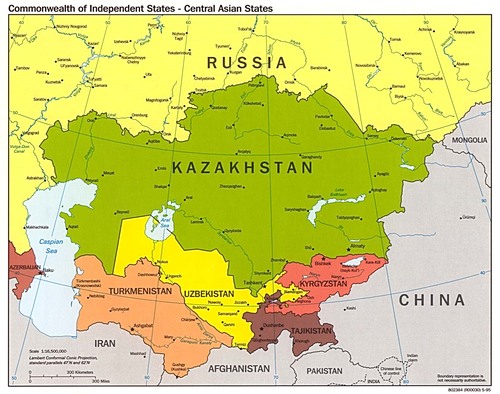COMMENT: "Former Soviet states aren't just Russian pawns: Countries such as Kyrgyzstan have shaped politics, triggering events to which Russia and the west can only react," by Stefanie Ortmann and Vadim Kononenko, The Guardian, 20 April 2010.
Love this one:
It is often assumed that a Kyrgyz turn away from the west would be a more than symbolic victory for Russia. And after all, did Bakiyev not come to power in a democratic revolution in 2005? Russia has been openly unhappy with the "colour revolutions" in the former Soviet space and removal of the democratic revolutionaries from power, be it in Ukraine, Georgia or Kyrgyzstan is part of Moscow's strategy of "imperial comeback". Or is it?
This kind of interpretation depicts the smaller states of the former Soviet Union as little more than pawns in the hands of more powerful actors. The Kremlin does openly pursue a strategy of asserting its influence in the former Soviet space, and so do the US and the EU. But these states are not objects of a geopolitical game over which they have no control. The image of a "new great game" underestimates the extent to which the smaller former republics have been actively shaping regional politics in recent years, triggering events to which Russia - and the west - could only react.
Examples of small states triggering Russian actions follow (Georgia, Ukraine, Kyrgyzstan), and yeah, when Russia intervenes, it seeks to advance it perceived interests, but again, this is reactive more than proactive.
In short, ditch the chessboard metaphor BS, along with that "great game" crap, which is moldy beyond belief.
[thanks to WPR's Media Roundup]
